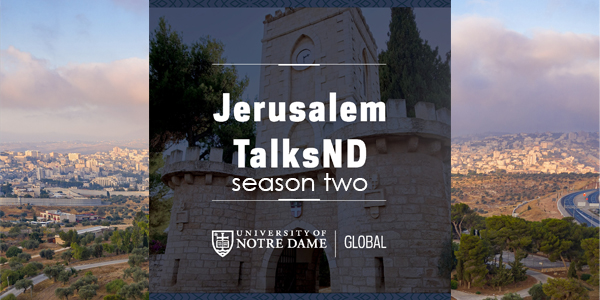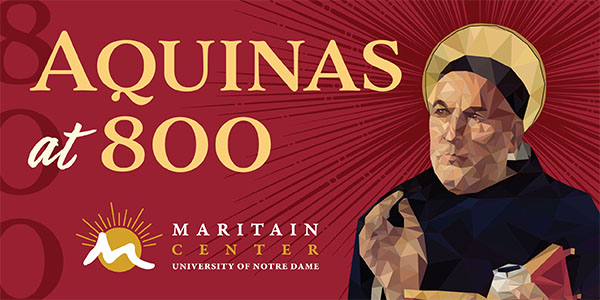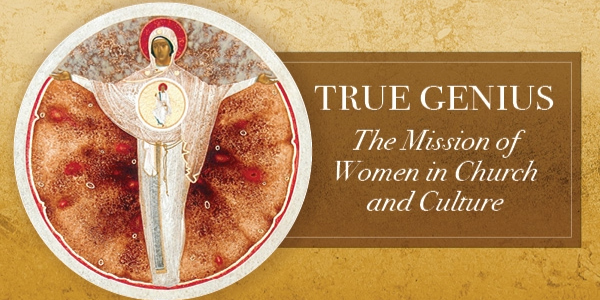The Rising Tide of Antisemitism on American Campuses and Beyond
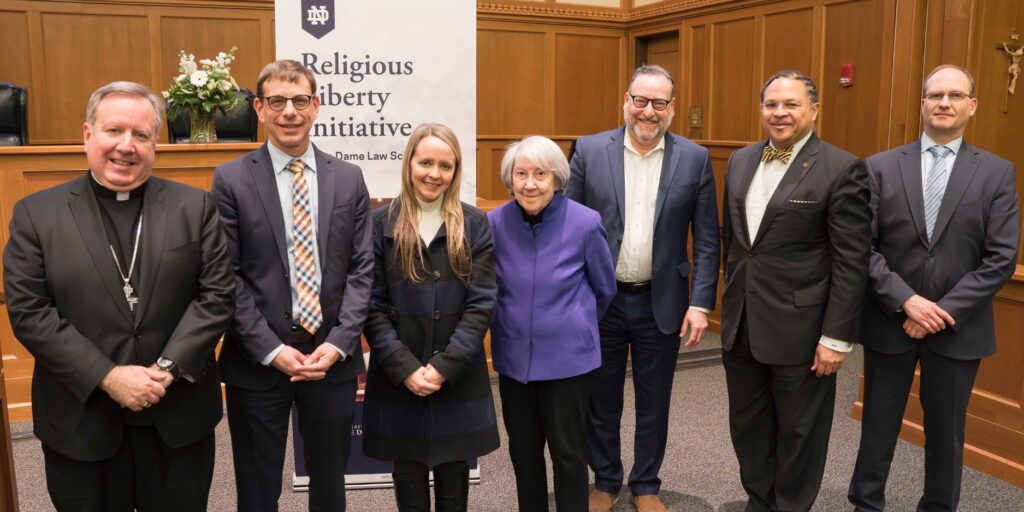
Professor Ruth Wisse, the Martin Peretz Professor of Yiddish Literature and Comparative Literature Emerita at Harvard University, delivered the keynote address. Panelists included Ken Marcus, Esq., chairman of the Louis D. Brandeis Center for Human Rights Under Law; the Most Reverend Robert J. McClory, bishop of the Diocese of Gary; and Professor Jeffrey Veidlinger, the Joseph Brodsky Collegiate Professor of History and Judaic Studies at the University of Michigan. Stephanie Barclay, who serves as the faculty director of Notre Dame Law School’s Religious Liberty Initiative, moderated the panel discussion. Together, the speakers presented a complex tapestry of perspectives from historical, legal, and theological lenses.
Avishalom Tor introduced the discussion and explained the history of the persecution of the Jewish people and how condemnation has paved the way to brutality, humiliation, slander, and even slaughter.
“From antiquity, through the Middle Ages, to the modern era, under Islamic rule and in Christian lands, in the East and in the West, Jews have been singled out for persecution,” he said. “They have been caricatured and condemned, harassed and humiliated, maligned and marginalized, segregated and slandered.”
Tor drew attention to America’s promise of religious liberty through its Constitution, which has helped to ensure that antisemitism in the United States would never reach the extent and severity of its most atrocious manifestations in other countries. He then emphasized the need to restore this promise, asserting that it has been shattered.
“The belief that America is different is shattered daily on American campuses and city streets. It is shattered by the words and actions of some students, faculty, and administrators at our great institutions of higher learning. It is shattered by the excited crowds joyfully celebrating and glorifying barbaric atrocities and identifying with their perpetrators, without exception or limitation,” said Tor.
Dean G. Marcus Cole, the Joseph A. Matson Dean and Professor of Law at Notre Dame Law School, then delivered the opening remarks, providing a clear distinction between what the event was versus what it was not.
“This is a discussion about the rise of antisemitism. It is not a debate about who is wrong with regard to the war in the Holy Land right now. This is not a debate about the policies of the government of Israel,” Cole said.
“It is also not a two-sided debate,” he added. “There are not two sides to antisemitism in the same way there are not two sides to racism. When George Floyd was murdered, there was no debate about whether Black people should be murdered. Likewise, we should not be having a debate about whether Jews should be murdered for being Jews.”
In her address, Wisse spoke about the “politics of blame” and the “politics of the pointing finger,” noting that people are “pointing the finger at others rather than tackling the real problems.” She defined antisemitism as the politics of the pointing finger, stating that the pointing finger directs suspicion at Jews.
“Antisemitism is the winning strategy of anti-Semites, and it turns them eventually into monsters of evil, and it corrupts the societies that they infect with their politics of blame. … These things deform and dehumanize. It can make the Jews bleed, and let me assure you: The Jews are bleeding at this moment. But, Jews recover,” Wisse said.
She also addressed the Hamas attack on Israel on October 7, agreeing with others who have called it the “deadliest day for Jews since the Holocaust.” Wisse provided a graphic, but honest description of the attack, stating, “I realize that some of you may be genuinely offended by microaggressions, so you certainly won’t want to see the bodies of babies burnt in ovens, of women raped and dismembered, of people decapitated, of every kind of sadistic torture. No human being should be exposed to seeing that carnage, let alone to suffering its consequences.”
Wisse’s keynote address laid the foundation for the subsequent panel discussion by tracing the history of antisemitism to current events in the Israel-Hamas conflict. She highlighted the fragile and often volatile environment that Jews, both in Israel and elsewhere, have endured for years.
The panel discussion covered a diverse range of topics, from the definition of antisemitism, to the Church’s stance on the conflict, to Holocaust education.
Marcus broke down the definition of antisemitism, identifying the three D’s: “if Israel is demonized, if double standards are used, and if there are efforts to delegitimize the Jewish state.” He mentioned that the three D’s make up an “internationally accepted definition of antisemitism, particularly at the government level,” and emphasized that context matters when determining if something is antisemitic.
McClory offered a theological understanding of the situation, underscoring the importance of mutual understanding, respect, and solidarity.
“The Church decries hatred, persecutions, and displays of antisemitism directed against Jews at any time and by anyone,” he said. “What Hamas did to the Jews is evil. It is evil. It is beyond disappointing that we can’t just stop and say that. When somebody says, ‘That was evil, but…’ that is evil. We need to acknowledge it.”
He also expressed that solidarity must be built over time in a sustained commitment to know and understand one another. He acknowledged that, while people do not need to agree on everything, they should stand together in actively recognizing and addressing evil when they see it.
Veidlinger spoke at length about the notion of Jewish privilege, stating, “The presentation of Jews as white made many social justice advocates complacent about Jewish security. The European legacy of Jew hatred persists in the New World. This notion of Jewish privilege is precarious. It can be taken away at any moment.”
He also discussed the value of Holocaust education, noting that it has been extremely valuable in the state of Michigan. Marcus added that, while Holocaust education is extremely valuable, it also has limitations. He said, “It is easier [for students] to deny contemporary antisemitism when it’s not looking like Nazism in concentration camps,” therefore making it difficult for students to determine whether actions are antisemitic or not.
Marcus concluded with a call to action for Notre Dame Law School students, urging them to use their legal education as well as their core values in order to address concerns proactively and effectively — all while ensuring that their future work is meaningful.
“Litigation matters. In the United States, it is often law that drives social change. Resist the temptation to separate values from your opportunities going forward. We can make a change by public policy and, when necessary, we can make a change through active legal advocacy.”
About the Notre Dame Law School Religious Liberty Initiative
Established in 2020, the Notre Dame Law School Religious Liberty Initiative promotes and defends religious freedom for all people through advocacy, formation, and thought-leadership. The initiative protects the freedom of individuals to hold religious beliefs as well as their right to exercise and express those beliefs and to live according to them.
The Religious Liberty Initiative has represented individuals and organizations from an array of faith traditions to defend the right to religious worship, to preserve sacred lands from destruction, to promote the freedom to select religious ministers, and to prevent discrimination against religious schools and families.
Learn more about the Religious Liberty Initiative at religiousliberty.nd.edu.
Originally published by Notre Dame Law School at religiousliberty.nd.edu on December 14, 2023.
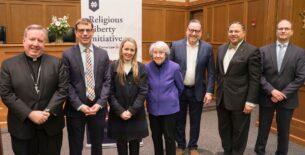
November 30, 2023
More Like This
Related PostsLet your curiosity roam! If you enjoyed the insights here, we think you might enjoy discovering the following publications.

